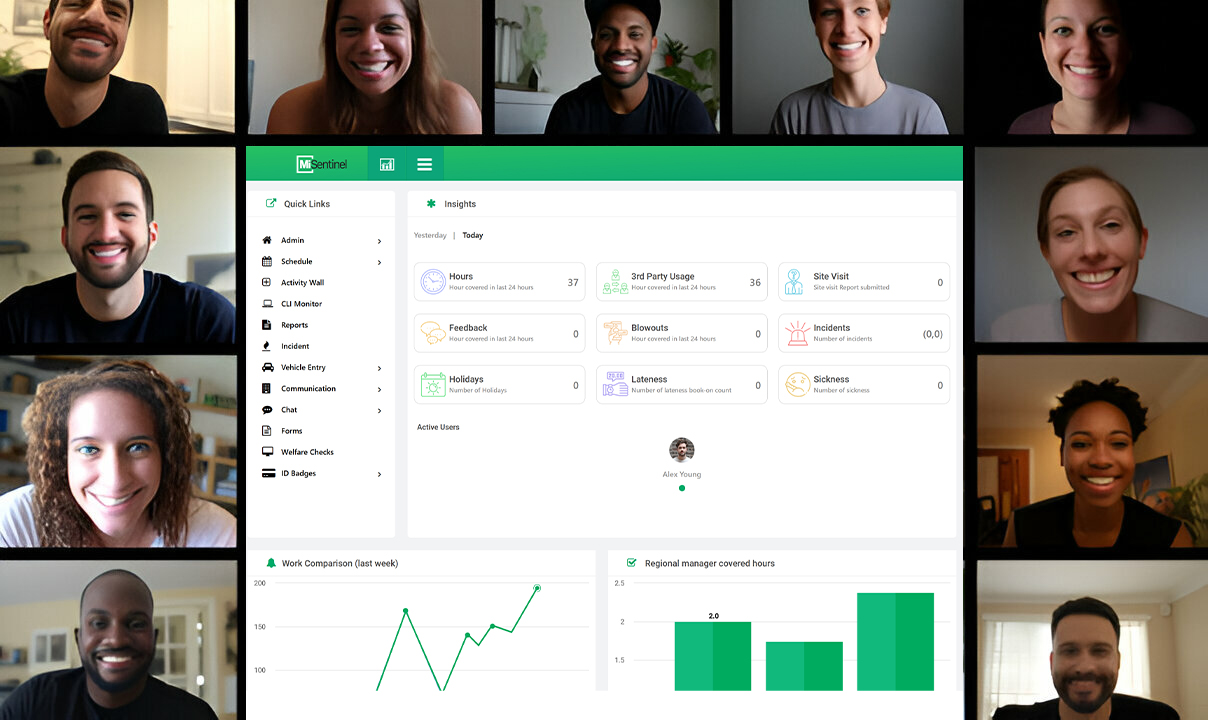
Is it too late to talk about New Year’s Resolutions? Even though we’re a few weeks into January, it’s still a good time talk about new challenges and set some goals for the year ahead. One thing that might have slipped your list in your strategic planning, is how to make your Facilities Management service more resilient this year.
One way to do that is to fully integrate your security team into your FM service.
Why? Well with a fully integrated team, your customers receive a more consistent experience of your services. All of the moving parts of your facilities management services work more efficiently and effectively.
In this blog, we explain how to integrate your security team into your FM services, and why it matters for your customer. Let’s start with why it matters.
Security officers aren’t just gatekeepers; they’re walking sensors scanning the environment for anomalies. They’re likely to be the first ones to spot a missing fire extinguisher, a faulty door lock, or a suspicious leak.
If your security officer(s) is part of the wider FM team he or she knows who to share their observations with, and they feel confident to do so. Your guards become proactive partners in preventing issues before they escalate. You reduce your customer’s risk of downtime and avoid those daily issues that can get under their skin.
Part of any security officer’s role is to carry out regular building patrols. But if they’re part of the FM team, they’ll be privy to the maintenance schedules for various systems. Knowing when electrical work is planned or which areas are undergoing renovations allows them to adjust their patrols. They can proactively mitigate potential risks and ensure everyone’s safety.
When the unexpected strikes, security officers are often the first line of defence. By integrating disaster preparedness training with facilities management plans, they can become part of a coordinated emergency response team. They help you speed up the evacuation, secure the perimeter, and provide crucial information to emergency services.
So those are a few reasons to integrate your security officers into the wider team, but how do you do it?
First, there are the straightforward things like inviting them to your daily or weekly meetings and briefings. Make sure they get the same messages and information as all your other FM team.
But have you thought about the technology they’re using? When all your team use the same platform, then you get greater consistency in reporting, responses and service levels.
That’s one of the reasons we developed MiSentinel. It gives your team the technology they need to do their jobs, and it means that everybody is singing from the same hymn sheet.
MiSentinel acts as a centralised communication hub, so it replaces disparate communication channels with a unified platform. All of your security officers, facilities managers, and other key personnel can access the platform and see the same information.
Everybody knows (in real-time) which incidents are live, where the maintenance issues are, and whether there are any building updates. They get instant alerts and notifications, ensuring swift responses to critical events.
It can also help you with organising the team roster. MiSentinel automates shift scheduling and time tracking, so you don’t have to do it manually. Security officers can view schedules remotely, request leave, or swap shifts, which makes their lives a little easier and results in happier, more motivated people.
By adopting MiSentinel, facilities management teams can bridge the gap between security operations and other departments. Information flows freely, tasks are managed collaboratively, and security officers become fully integrated partners.
If you’d like any further information about MiSentinel, please get in touch.
The transformation and adaptation of SaaS (Software as a Service) and...
Modern workforce management (WFM) software solutions can have a....
In this fast-paced world, uncertainty is a given. Solutions to fix such uncertain...
Copyright @2025 Sentinel Technologies. All rights reserved.